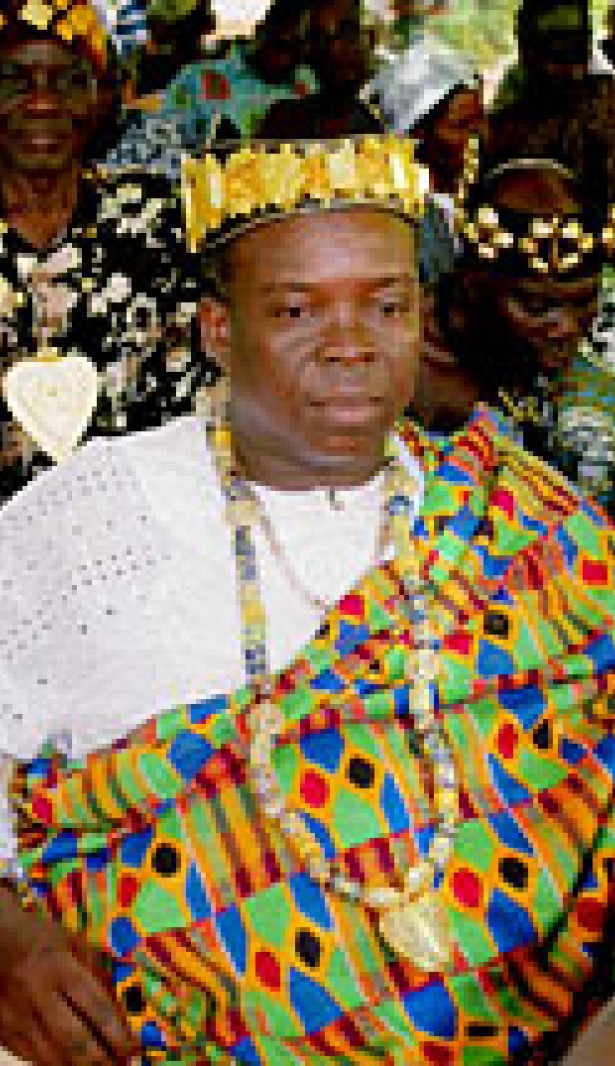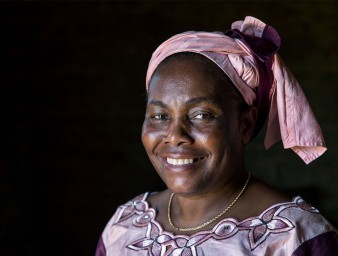Fighting widowhood practices that enable violence against women in Togo
26 December 2012

Becoming a widow exposes women to acute forms of discrimination in regions of Togo where traditional widowhood practices persist.
These practices can be so degrading and humiliating for widows that they contribute to making them even more physically, emotionally and economically vulnerable. These practices can also constitute grave violations of women’s fundamental human rights.In these regions, the weight of tradition forces widows to become secluded and hidden away from public view. Other widows have to endure physical abuse during ritual ceremonies believed to confirm their responsibility or innocence in their husbands’ deaths.
To ‘break the connection’ with their deceased husbands, widows are socially pressured to have sexual intercourse with another man before they can enter into another relationship or remarry. Some have no other option than to seek out strangers to break their cycle of widowhood, exposing themselves to greater risk of contracting HIV/AIDS and other sexually transmitted diseases.
A traditional chief in the Canton of Woame, prefecture of Kloto, Togo, decided to end the history of degrading rites and violence against widows. Togbui Dzedo, a 48 year-old paralegal and father of four, has been leading his township since 1985. As a child, his father left Dzedo’s mother because she did not bear him many children. He also heard many cases of violence against women at the traditional court that solidified his commitment to defend women’s rights.
“Every Tuesday there’s a general hearing in the Chief’s court. During our arbitration meetings, we sometimes hear our mothers and sisters complain about various forms of violence against them. Husbands often don’t understand their wives’ grievances,” he says.
Twelve years ago, Dzedo was elected chairman of the chiefdom of his community. Thanks to his newfound status, he convinced traditional and cultural leaders to eradicate harmful and degrading rites for widows. Later, he participated in a nationwide project to end violence against women with the NGO Alafia, supported by the then UN Development Fund for Women (UNIFEM).
In 2005, Dzedo ruled on an inheritance dispute between four sisters and two brothers. After their father’s passing, one of the sons grabbed all of the deceased’s property and threatened to kill his siblings, especially his sisters. He claimed that the assets they would acquire from their father’s estate would become the property of the families his sisters had married into.
“The Council and I told him that old practices were over and that we must comply with the law. We called for a meeting to divide the property among the children and eventually all the descendants had a share of the inheritance.”
Togo is a signatory of Convention on the Elimination of Discrimination against Women (CEDAW) and has enshrined women’s rights in the 1992 constitution, as well as in the family code.
Both the Committee on the Elimination of Discrimination against Women and the Human Rights Council’s Universal Periodic Review have urged Togo to introduce measures to modify or eliminate customs that discriminate against women, in particular widowhood practices. The UN Human Rights Office has also mainstreamed human rights and gender issues in Togo through its country office, its regional office in Dakar, Senegal, the UN Country Team and civil society organizations on the ground.
“My wish is that the Togolese government would financially support traditional leaders, NGOs and other women’s rights organizations, raise awareness and promote access to widows all over Togo in order to improve their condition,” Dzedo says. “Some districts have abolished harmful practices and unequal distribution of estates. But much remains to be done. The Togolese government should also review certain articles of the Code of Persons and the Family that disfavour widows when it comes to sharing their husbands’ properties.”

VIEW THIS PAGE IN:



